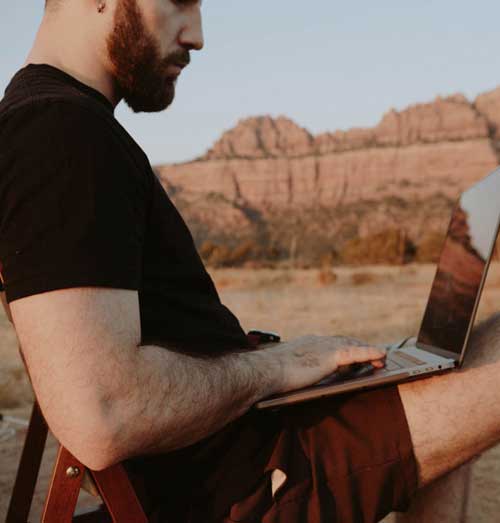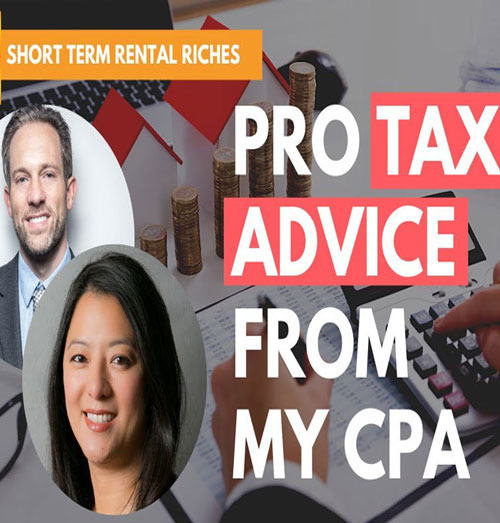Protect your Airbnb with these emergency preparedness tips for short-term rentals. Learn to safeguard guests, property, and profits during unexpected events.
In this episode, we’re discussing emergency preparedness for short-term rentals and how to protect your Airbnb. Natural disasters like hurricanes, floods, and wildfires are becoming more frequent, and as short-term rental hosts, it’s our responsibility to be prepared for when they strike. If you operate in areas prone to these events, ensuring you have the right insurance coverage, clear guest communication strategies, and a well-thought-out disaster management plan is crucial.
We’ll explore how you can protect your business from loss of income due to natural disasters, navigate Airbnb cancellation policies, and handle emergency guest management during power outages or severe weather events. If you’ve experienced something like Hurricane Milton or a wildfire affecting your property, this episode is packed with actionable advice to help you get through it.
5 Key Takeaways:
-
Get the right STR insurance: Make sure your short-term rental insurance covers natural disasters like floods, hurricanes, and fires, along with loss of business income.
-
Clear guest communication is key: Keep your Airbnb guests updated with real-time information during emergencies, especially regarding power outages or evacuation protocols.
-
Plan for cancellations and refunds: Understand Airbnb’s cancellation policies during disasters and have clear rules in place to manage cancellations or refunds fairly.
-
Offer alternative accommodations: If you manage multiple properties, offer guests an alternative Airbnb location or a credit toward future stays if they need to cancel due to a natural disaster.
-
Prepare for loss of income: Ensure your STR insurance includes loss of business income to cover any period when your property is uninhabitable, so you don’t suffer financial losses.
Dealing with emergencies is stressful, but by being proactive, you can protect your Airbnb or short-term rental business and your guests. Make sure your STR is prepared by having the right insurance, setting up clear guest communication during disasters, and planning for cancellations or refunds when necessary. If you manage properties in disaster-prone areas, review your insurance policies and guest communication strategies now—before the next emergency strikes.
Thanks for tuning in! I hope this episode gave you practical tips on preparing for emergencies in the short-term rental space.
–
Need help managing your short-term rental and you don’t want to go it alone? Shoot us a message here and we’ll see if we can help.
Are you enjoying the podcast? Please subscribe, leave a rating and a review, and share it! This helps us reach others that may find the info helpful as well.
You can find all of our links here including our website, recommended resources, upcoming live event, short-term rental playbook, Instagram, and more!
Click Here to view Transcript
Over the last few years, we’ve had quite a lot of emergencies happening, so floods, fires.
We just went through Hurricane Milton, and it affected a lot of people.
My heart goes out to you if you were one of those people.
When I was in Brazil earlier this year, they had one of the largest floods in history.
As a lot of you know, I spent about half of my life, really, in Brazil, and over 100,000 people were displaced there.
And so these things happened, but as short-term rental owners and short-term rental hosts and short-term rental managers, we need to have some policies in place and we need to have our emergency planning thought out ahead of time.
So this week, I want to talk about just a few of those steps.
And so I hope it helps you to be a little bit prepared for whatever may happen in the future.
Welcome to Short Term Rental Riches.
We’ll discuss investing in real estate, but with a specific focus on short-term rentals.
Quick, actionable items to acquire, manage, and scale your portfolio.
I’m your host, Tim Hubbard.
Well, welcome back to the show.
I’m glad you’re here again.
Episode 258.
Every week, we’re back here trying to provide you quick, actionable advice to help you along your short-term rental journey, to help you with your short-term rental portfolio, your vacation rentals, your small multifamily properties, your boutique hotels, whatever it happens to be, if it’s in the short-term rental space, we’ve got you covered here.
And so we’re talking about emergencies this week, and there’s a lot of different things that can happen, right?
So we had Hurricane Milton, which was a really big one that affected a lot of people.
And Florida is no stranger to hurricanes, right?
So some states, some areas, these sorts of natural disasters just happen much more frequently.
And so it’s even more important if you have a short-term rental in one of these areas, that you have some steps in place.
In California, where I’m from originally, there’s lots of fires, right?
A lot of times there can be power outages in any state of the US.
So it’s good to have a few steps in place.
And the first one, the first thing as a homeowner, as a property owner, is that you need to make sure that your insurance is adequate.
If you’re renting your properties without some sort of short-term rental specific insurance, well, it’s very likely even in some of these crazy situations that your insurance company isn’t going to step up to bat for you.
And so that’s the first thing.
You want to make sure that you have adequate coverage for your property.
And one of the things you’re going to want to check for are what the insurers call exclusions.
And believe me, they have a lot of exclusions when it comes to short-term rentals.
Most normal property insurance policies, for example, have what they call a business exclusion, which means if you earn more than $2,500 of business income per year, that you’re excluded from their coverage in a lot of different situations.
And we know from prior episodes with my accountant, Amanda Hahn, from Keystone CPA, we just did one a few weeks ago.
Go back and check that out.
She lays out all of the details and what the IRS considers a short-term rental.
But one of those rules is if your property rents for an average of seven days or less throughout the year, then it’s considered a business.
And if your insurance has a business exclusion, well, you might not get covered when push comes to shove.
Some other exclusions that you might find in your policy, an off-premise exclusion.
So let’s say that there’s a hiking trail right next to your property and someone gets injured there and there’s a liability claim.
You might not be covered if this exclusion is there.
There are pet exclusions depending on the type and breed of animal that’s staying at your property.
There’s some more obvious ones like liquor exclusions, for example.
And so we got to make sure we have the liability side of things as well.
But that’s the first step is we need to make sure we have adequate insurance, including things for when disasters strike.
I know I have a lot of property in Oklahoma where they have a lot of tornadoes and they have a lot of crazy hail that can damage roofs.
And so depending on where you’re at in the country, we need to make sure that we have adequate insurance.
I know it’s gone up a lot, especially in places like Florida.
But if your property gets washed out, and again, my heart goes out to you if you’ve been affected in the latest one.
Insurance is one of those things that it’s never fun paying for it, right?
But when we really need it, we really need it.
Okay, so next up, assuming we’ve got adequate insurance in place, we need to know how to properly handle our guests if an unexpected natural disaster or power outage or emergency happens.
The first thing is just to keep our guests up to date the moment that we hear about something, right?
And now when it comes to disasters, the more properties you have too, the more this can really affect you, right?
Imagine one property versus five and the amount of refunds.
You know, when we went through COVID, there was a lot of refunds going on, and those were things out of our control, right?
And natural disasters are out of our control.
But if we don’t have the right refund policies in place, then this can be detrimental to our portfolio.
Another thing that you want to check for with your insurance is that you have loss of business income.
So let’s say that your property did get flooded and you can’t rent it for six months.
Well, with short term rental specific insurance or having this loss of income as part of your policy, you can let the insurer know the average amount that you make per month and you can insure your property against loss of income.
So if it takes you three months to recover from a flood, they will pay out what you are earning on average.
So another thing that you want to look for in the insurance policy.
Okay, so back to handling guess.
If there’s something like a power outage, for example, well, we want to check first of all to see when the power is going to come back on.
We want to keep our guess updated all the time.
Most of the time, the big utility companies have estimates.
You can jump on their website and they’ll say, you know, estimated power to come back on in two hours from now.
But in these crazy disasters, sometimes, you know, it can be several days.
And so we want to notify the listing channel where that reservation came from.
That’s one of the first steps.
So whether it’s Airbnb or VRBO, we want to let them know of the situation.
And we want to have our cancellation policies really carefully thought out on the back end.
And when I say cancellation policies, I’m referring to how we want to handle this with guests really in these emergency situations.
So obviously someone’s not going to stay in our property for four days if they don’t have power.
But a lot of times we don’t know when these things are going to get resolved.
So we’ve got to have just some couple quick steps in place.
The first thing that we would do, let’s say we had multiple properties in a market, we would offer to transfer our guests to another property first before we just refund their reservation or cancel their reservation.
A lot of times we don’t have that luxury though.
So what we might do instead is offer the guest a full refund as a credit towards a future reservation.
Another thing we might do is if we don’t have the luxury of having another property in the same market that happens to be vacant and doesn’t have the same issues going on, then we would offer to rebook the reservation for a date in the future instead of refunding.
And then really the final step there, you could also offer to put your guest up into a hotel or somewhere in the area for a designated period of time.
And so if you heard back from the utility companies or from the local government or whatever it happened to be, that things would be resolved within a day and there happens to be occupancy of another place, well, then you can offer and help them through this process, right?
To find another accommodation where they can come back maybe the day after or a couple of days afterwards.
Sometimes if the event, the disaster was just too crazy, then we don’t really have another option.
The guest is going to ask for a refund.
Hopefully they had some sort of traveler’s insurance.
And so that’ll be really helpful if they’re able to recoup that money from the insurance they purchased and not from a canceled reservation in the form of the money coming back from you.
We know that Airbnb does have some policies that say in certain circumstances, guests can cancel no matter what and get a refund.
And that’s a bit out of our control, right?
If we remember back to COVID, that happened a lot.
But usually that’s not the case, right?
Usually these are moments where, you know, the flooding resides very quickly or the power comes on very quickly, and we’re able to resolve things with the guests, hopefully not losing money on that reservation.
You may want to consider if you’re in one of these areas that has lots of storms or even storm warnings that your house rules or your rental policy is really detailed.
So you may want to include something that says, we do not offer refunds for storm warnings.
So we know there’s a lot of storm warnings that happen, and the actual storms are much, much more rare, right?
So this just comes back to knowing our market, going through our house rules thoroughly, having a process in place, what we’re going to refund, when we’re going to refund.
You know, a lot of times people have bought a lot of food, for example.
They show up to your vacation rental for a whole weekend.
Something goes wrong, the power goes out, and they’ve got a bunch of food in the refrigerator.
Who is responsible for that?
Well, it’s up to you, right?
You need to have some rules in place.
And so hopefully this just gets you thinking.
Hopefully again, you didn’t get caught in this last hurricane.
Double check your insurance one more time just to make sure.
And until next time, I hope that gave you a couple little tips there.
Again, my heart goes out to you if your property or anyone you know was damaged or hurt in this last hurricane.
Until next time, I hope you have a great week and we’ll talk to you soon.
Whether you’re just getting started or you have dozens of properties, one thing remains the same.
Poor management can crush your investment returns.
Our team has learned a lot managing over 40,000 guests and we’ve compiled our biggest takeaways into a handy guidebook to help you better manage your property.
Equipped with checklists for guest verification to pricing strategies, it breaks down our whole process from start to finish.
Best of all, it’s free for you for being one of our loyal subscribers.
You can get your copy by going to strriches.com.
That’s strriches.com, and I hope it helps you earn higher returns with less headache.















